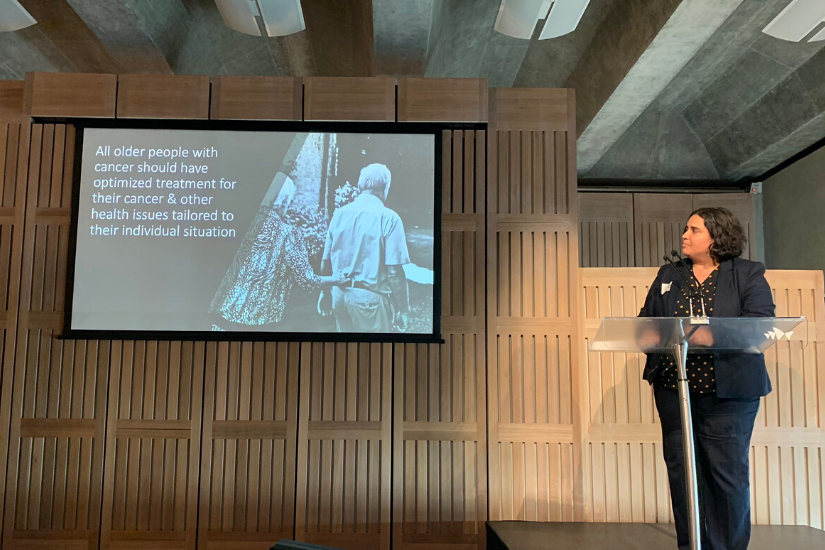
4 February 2020 marked the 20th anniversary of World Cancer Day [opens external site], an international day dedicated to raising worldwide awareness about cancer.
The theme of the day was cancer survivorship, which was an opportunity to highlight the importance of research that aims to improve the lives of those living with, and beyond, a cancer diagnosis.
In particular, the centre for Improving Palliative, Aged and Chronic Care through Clinical Research and Translation, or IMPACCT, is at the forefront of this movement.
Generating targeted research since its inception in 2009, IMPACCT researchers are working to ensure Australians affected by cancer receive the best care, any place, every time.
IMPACCT Director, Professor Jane Phillips, said the centre’s collaborative model, with a focus on capacity building, was key to improving outcomes for Australians impacted by life-limiting illnesses, ageing, and chronic conditions such as cancer.
“The acceleration of wholly coordinated research into palliative, aged, and chronic care in Australia has delivered significant gains for health providers and the thousands of Australians affected by ageing and life-limiting conditions,” she said.
“We drive research in partnership with consumers and clinicians, and in parallel with higher education, enabling new knowledge to be integrated into routine care in a systematic and principled manner, always putting patients – and patient outcomes – first.”
For the centre and its researchers, World Cancer Day was an opportunity to affirm their commitment to undertake patient focussed and globally connected research.
In particular, the event Research in Partnership showcased the efforts of leading researchers to drive ongoing improvements in diagnosis, treatment and survivorship care for those impacted by cancer.
Among them was Professor Meera Agar, Professor of Palliative Medicine at IMPACCT and Palliative Care Physician.
As Chair of Cancer Symptom Trials (CST), Professor Agar delivered a powerful seminar on optimising outcomes for older people with cancer.
Of her research, she said, “As our population ages, we face a number of critical health, social and economic challenges. People are living longer but we are increasingly confronted by advanced cancers and a wide range of chronic diseases.”
“Research on palliative and end-of-life care is critical to understanding the holistic needs of Australians with advanced cancer, supporting family caregivers, addressing workforce challenges and understanding care needs across a wide range of settings.”
“A diagnosis of cancer has a significant impact on the lives of individuals, their families and communities. Those living with cancer and their family caregivers are commonly required to make difficult decisions about treatment options, lifestyle changes, and self-management strategies."
“Our research and health services planning capabilities help individuals and their families cope with these challenges,” Professor Agar said.
Through their ground-breaking research, IMPACCT ultimately hopes to influence thought leadership among policy makers and professionals both here in Australia and around the world.
“IMPACCT is here to make a difference, developing best-practice models of care supported by highly skilled health professionals across both clinical and community-based settings,” Professor Phillips said.
While cancer outcomes have improved significantly over the past three decades, there are now many survivors who are living with the long-term effects of their disease.
Researchers such as those at IMPACCT are working collaboratively to develop and deliver evidence-based practice to affected individuals and the communities that surround them.
Learn more about Palliative, Aged and Chronic Care Research at UTS

